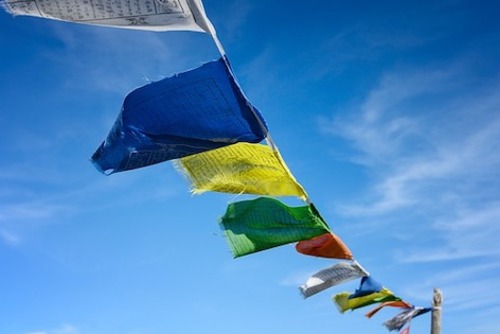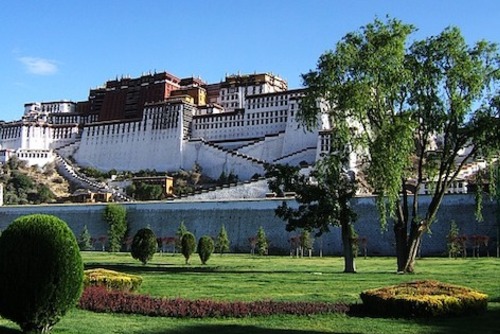Lha Community Social Work Organization (Charitable Trust) has been providing social service projects in the community since 1997. The primary goal of Lha is to facilitate an easy transition for the refugee community and provide a long-term rehabilitation resources. Lha provides education, cultural, environment , health education and social services to bridge to the Tibetan refugee community in northern India.
Lha is managed by a group of Tibetans refugees who draw their expertise from their first hand knowledge of what it means to be in exile, and fueled by volunteers from around the world. Lha seeks to generate an atmosphere of harmony and cooperation within the surrounding community by tending to the needs of the impoverished and fostering cultural exchange and endorsing awareness of the Tibetan situation. The services of Lha are open to Tibetan refugees as well as the local Indian population and Himalayans. Since 2003, Lha has been offering as many as thirteen different classes daily, all free of charge. Classes include language courses in Tibetan, English, Spanish, Chinese and French, computer training, yoga, meditation, environmental clean-up initiatives, business management training and much more.
At present, 150 to 200 students study in Lha on a regular basis. Lha also works in conjunction with various other organizations in the local area to assist the exiled Tibetans. The aim is to continually establish community connections to increase the quality of life for the majority of the population. Lha's Outreach Program extends aid to the wider Indian community in the form of self-sustaining clean water projects and clothing donation.
Since 2003, over 23,799 individuals have participated in Lha's courses. Most participants are adults who were deprived of educational opportunities both inside and outside Tibet. Many were not admitted to schools due to their age. Over 1,792 volunteers from thirty seven different countries have worked with Lha. Lha continues to expand to meet the growing needs of the community. Besides the original language and computer courses, Lha now offers Massage and Business Management Training, Yoga, Reiki, Cooking classes, Arts, two community Libraries, Clothing and Book distribution, internet phone services and a wide array of volunteer coordinated activities and opportunities for cultural exchange.
Lha endeavors at all times to be flexible and responsible to our Tibetan partners. Our programs and projects are adjusted each year as the conditions and the needs of the region. Yet our commitment remains constant: To help the Tibetan people survive and preserve their profoundly important culture while offering volunteers and students the opportunity to engage in meaningful community service and social work.
Lha is solely dependent on the goodwill of volunteers, monetary and material donations. Lha is currently operating in the rented building which includes 12 rooms for classes, training and offices. We don't have permanent sponsors for the rent of the building. For now, cost for the rent is supplied by donation from the group of students from Tulane University and others in schools in the U.S.
In order to continue meeting the needs of the Tibetan refugee community, we need to move to larger premises. Owning our own premises will free Lha Community Social Work Organization (Charitable Trust) from depending on donors for rental payments and enable us to make long-term plans. In addition our current building in is set to be demolished in the near future. We would be very grateful for any help you can give us in this exciting new stage of our development. Please click on New Building or on the home page for more details. Thank you for your continued support and encouragement.
Aims & Objectives
1. Provide Tibetan refugees with the education, health, skills and assistance needed for building a new life in exile.
2. Facilitate meaningful learning and cultural exchange experiences between Tibetans and the hundreds of volunteers and groups of university students who visit from countries around the world.
3. Create awareness about Tibetan situation and preserve the endangered Tibetan culture.
4. Provide a multitude of social services to Tibetan refugee as well as the local Indian population and Himalayans.
5. Generate an atmosphere of harmony and cooperation within the surrounding community























